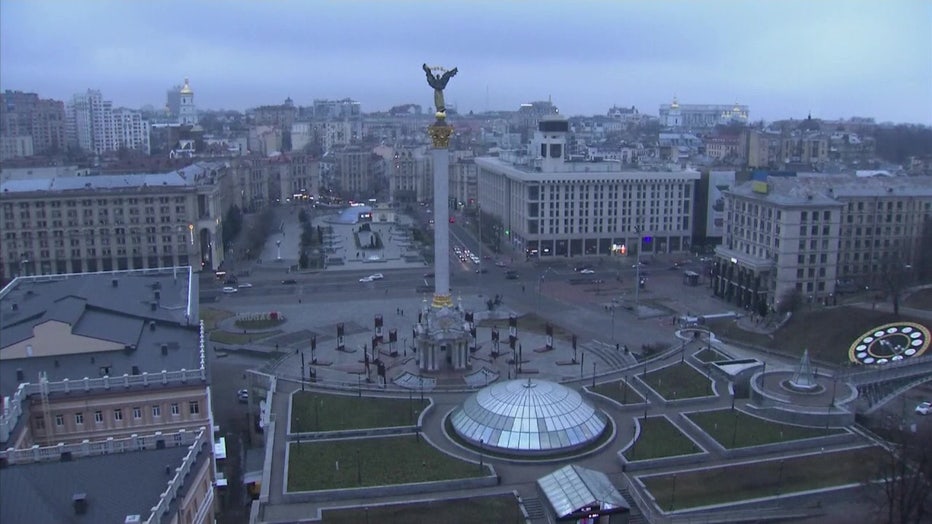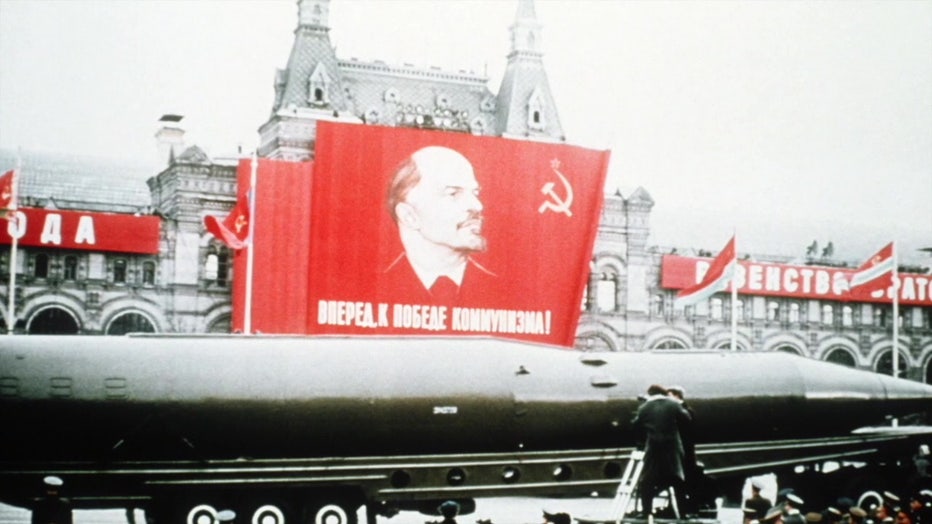Russia-Ukraine conflict: What led to invasion?
TAMPA, Fla. - The world’s eyes are on Ukraine as Russian forces continue their assault on Ukrainian land as Russian president Vladimir Putin angles for control.
"For a long time, he has tried to control Ukraine. In 2014, he annexed Crimea. He invaded eastern Ukraine, claiming that those regions really belonged to Russia, claiming that people in those regions are being persecuted by the Ukrainian authorities," said Golfo Alexopoulos, director of the University of South Florida’s Institute on Russia and professor in the School of Interdisciplinary Global Studies.
There’s deep history between the two countries. Both were a part of the former Soviet Union until Ukraine broke off in 1991, and there’s since been a fight for control and influence in the years. Alexopoulos said Putin pushed separatist movements in eastern Ukraine.
"[Putin’s] had this drumbeat for a very long time. Those areas in eastern Ukraine, Russian forces have been in those areas. They've been supporting separatists. So about 14000 people have died in that region. People don't realize that this has been an ongoing war," she stated.
READ Ukraine Invasion: Russia claims to have knocked out Ukraine air defenses
There are now two breakaway regions, Luhansk and Donetsk. University of Central Florida politics and international relations professor Konstantin Ash once lived in Ukraine near Russia’s border, and he said Russia may want more.

"I think what the plan might be is to carve out a few proxy states, kind of like the Luhansk People's Republic, the Donetsk People's Republic and chop off like half of Ukraine and make it a more pro-Russian chunk and then maybe put in a more pro-Russian government into in Kiev," said Ash.
READ ‘Nobody is safe’: Ukrainian-Americans in St. Pete pray for family members following Russian invasion
Ukraine has turned its gaze toward the west, an idea Putin finds threatening, so there’s a lot at stake.
"Can you be a country, or are you ultimately at the behest of some other country backs to you that happens to have more military strength? And that's sort of something that we haven't had a lot in in sort of politics in a long time because countries haven't been invading each other for a while and we haven't since World War II ended. We haven't had that sort of risk," explained Ash, adding that sovereignty, democracy, and the ability to sort of govern without foreign interference are at stake.

What happens half way across the world still matters in the U.S. and impacts the American way of life.
"I think Americans need to worry because this is a nuclear power run by a dictator who can do very dangerous things. We care about European security. And so this has upended the European peace in Europe," said Alexopoulos. "I think we should also be concerned about this spreading and what message it sends."

